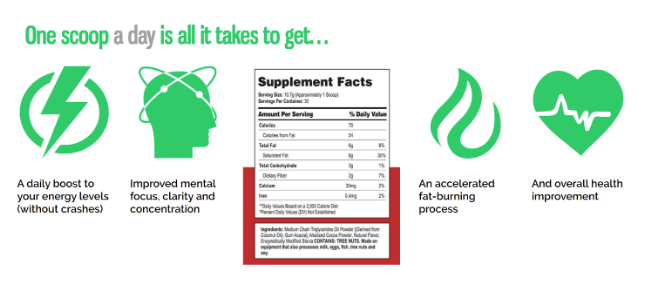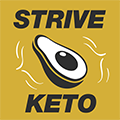How Do Carbs Effect Hormones?

Hormonal problems are very common in modern society and can manifest in the forms of tiredness, stress, anxiety, depression, and physical pain. They also result in overeating and weight gain, causing numerous other health problems. So what is at the root of hormonal imbalances and problems? The simple answer is eating excessive carbohydrates and processed foods in the diet, which results in insulin resistance and does grave damage to hormonal systems over time.
Carbs are basically sugar, which causes insulin levels to rise, and starches are just large chains of glucose molecules.
Insulin resistance is linked to many different types of diseases, so doesn’t it make sense to minimize insulin levels at almost any cost? Yet, the government and food industry recommends eating grains as the foundation of your diet. Even whole grains are made up of 70 percent carbs, which is essentially equivalent to sugar. All these grains and carbs trigger the release of insulin.
So what happens when you’re eating all those carbs that are basically the same as sugar? Well, having alarmingly high insulin levels and blood sugar levels that are constantly spiking, it hits the body with major stress. This causes imbalances in the hormonal systems. Cortisol levels can go up, which results in mental impairment, sleep issues, and increased belly fat. Thyroid levels can also be impacted, resulting in dramatic changes in weight and the nervous system.
Basically, hormonal imbalances and insulin resistance are lifestyle diseases. They are generally caused by a poor diet, whether it is a result of misinformation or just carelessness. The medical community loves to treat these diseases with drugs and medication, including pills and shots, which are just short-term fixes and don’t actually improve the long-term health of the patient. For hormonal imbalances, they use medication to target the hormone that is overproducing. If a patient has an overactive thyroid gland, it can be destroyed by injections of radioactive iodine. However, the patient will need to take thyroid hormone pills for the rest of their lives. Also, insulin is a drug often prescribed to control blood sugar, and it is just another temporary fix for a chronic disease.
However, it is not as profitable to treat patients by helping them change their lifestyles. If everyone was to eat healthier and cure their diseases with diet changes, many doctors, drug companies and food industries would go out of business. Hormonal imbalances stemming from elevated insulin levels would be treated by changing people’s diets, simply by minimizing processed foods and carbs, such as grains and sweets. By adopting this type of low-carb diet and eating mostly unprocessed whole foods, most people can improve their hormonal systems and oftentimes completely cure their ailments resulting from hormonal imbalances.
What is MCT Oil?

MCT oil is a healthy type of fat that is more easily digested and processed by your body, and it comes with amazing health benefits, especially if you’re on a keto diet. MCT stands for medium-chain triglycerides, with triglycerides being the molecules that make up most fats. These fats occur naturally in coconut oil, palm oil, goat milk and breast milk.
MCT oils are generally made from coconut oil or palm oil, and they get absorbed directly from the gut into the liver and converted into ketones, instead of being stored as fat, which means MCT’s get broken down faster than long-chain triglycerides. Ketones produced from MCT oil have incredible health benefits, including increasing fat-burning metabolism, satiety, energy, and brain function.
Another reason MCT oil is so popular and important for those on a keto diet is because it is a great and easy source of fat, which is necessary to get into ketosis. However, MCT’s are generally not included in a typical Western diet, so they must be acquired through supplements, such as the Completely Keto MCT oil powder, which is one of the best: striveketo.com/caramel-mct
Studies show that MCT oil (especially C8 and C10) speeds up your body’s natural fat-burning processes and metabolism by helping it produce more ketones, which can help you quickly lose weight and burn calories. Ketones also suppress ghrelin (hunger hormone) and increase cholecystokinin, which makes you feel fuller for longer. MCT’s also increase production of two hormones in your body, Peptide YY and Leptin, which also makes you feel more full so that you end up eating less. MCT oil also supports your gut lining and growth of good bacteria, which can help you lose weight faster. This is important because when you have holes in your intestine, toxins, bacteria and food particles can escape your digestive tract and enter your bloodstream, putting you at serious risk for gastrointestinal disorders like inflammatory bowel disease and food allergies.
Next, MCT oil keeps your sugar levels under control, which helps you stay in ketosis. Recent studies have shown that people who take MCT oil everyday have a significant reduction in body weight, belly fat, and insulin resistance. They also require up to 30% less sugar to maintain healthy blood sugar levels, making MCT oil very beneficial for those who are pre-diabetic or suffer from type-2 diabetes.
MCT oil also helps reduce the risk of heart disease by increasing fat burning and weight loss. Those who include MCT in their daily diet often see a significant reduction in bad cholesterol and C-Reactive Protein (an inflammatory marker that increases risk of heart disease).
Not only that, MCT’s also provide an instant source of energy for your brain, promoting better brain health. When your body has a low enough level of carbs, high quality MCT oil can be converted into ketones in just minutes, which (unlike glucose) can cross the blood-brain barrier and be used as fuel for brain cells. This results in better brain performance, mental focus, energy, and concentration.
All in all, using MCT oil is a no-brainer, whether you are on a keto diet or not. However, you will get the maximum benefit of MCT’s when you are on a keto diet, because the ketones produced while in ketosis will improve your fat-burning metabolism, energy levels, heart health, and brain functions.
How to Identify Hidden Carbs on a Ketogenic Diet

Arguably the most important part of a ketogenic diet is keeping your daily carbs in check. If you want to get into ketosis or bust a weight loss stall, carbs are usually the biggest challenge in your way. That’s why being able to spot and identify hidden carbs can be a very valuable skill that will help you achieve your keto and weight loss goals over time.
Face it, the food industry is obsessed with carbs and they are mass produced and dumped on consumers wherever you go, making them very hard to avoid. Not only do you have to be very disciplined to keep carbs out of your diet, you have to be very discerning and aware of all the hidden carbs in the food that you eat.
Total Carbs VS Net Carbs
When food labels show the number for total carbs, this is actually different from what is called net carbs. Net carbs don’t count the carbs from fiber, because fiber has little impact on your blood sugar levels. They’re slowly digested and gradually released into the bloodstream, mitigating any effect on your blood sugar levels. So if you want to calculate the net carbs in a particular serving of food, you take the total carbs and subtract carbs from fiber and also sugar alcohols.
When first starting off on keto, you can decide whether you want to track the total carbs or net carbs in your diet. Those new to keto may decide to start tracking their net carbs, because it is easier to limit net carbs since your overall carb intake will likely be higher than if you track total carbs. This will allow you time to adapt to a low carb lifestyle, and then if you want to boost your keto diet results, you can switch to tracking only total carbs, which will give you a more powerful effect on your diet and help you get into ketosis even faster.
Sugar Alcohols
There are many foods that are labeled sugar-free and carb-free and usually they contain sugar alcohols, but these ingredients are actually not zero-carb and many of them can actually spike your insulin and blood sugar levels. Some of these sugar alcohols include names such as: honey, agave, molasses, xylitol, sorbitol, maltitol, Splenda, vegetable glycerin, yacon syrup, etc.
Better alternatives to these include stevia, monk fruit, and erythritol. It’s important to monitor the effects that these types of ingredients have on your blood sugar, because different people react differently and some are more sensitive to these types of sweeteners than others.
Sauces and Seasoning
Most people are already aware that sweet sauces contain sugar, but many other types of sauces and seasonings all contain carbs that can add up quickly if you don’t account for them. It’s best to use seasonings and sauces that have minimal carbs. Some seasonings, herbs, and spices that contain one gram of carbs or less per tablespoon include cinnamon, garlic, ginger, mint, basil, tarragon, black pepper, cloves, coriander, curry powder, bouillon cubes and powders, ginger root, and lemon/lime juice.
The seasonings, herbs and spices that have more than a gram of carbs per tablespoon should be monitored more carefully because they can add up fast. Some seasonings, herbs and spices that have about three to six grams of carbs per tablespoon include: chili powder, oregano, garlic powder, cayenne, paprika, onion powder, and ground cumin.
When it comes to dressings such as for salads, you should be aware of what kind of dressing you are putting on your salad. Per tablespoon, balsamic vinegar has two grams of carbs, plain balsamic oil has three grams of carbs, and processed balsamic oil has nine to twelve grams of carbs. As you can see, the processed balsamic oil is significantly heavier in carbs than the other dressings. White, cider and wine vinegar actually has no carbs at all.
When it comes to sauces, Tabasco hot sauce has no carbs. Soy sauce has half a gram of carbs per tablespoon, plain and Dijon mustard have less half a gram, and mayonnaise has half a gram. If you’re into flavor extracts such as vanilla, orange and almond, they have about half a gram of carbs per tablespoon.
Protein and Dairy
All kinds of deli meats that you buy at your local grocery can have starch and sugar, such as ham, sausages, corned beef, etc. Also the more processed they are, the more they are loaded with carbs. You have to be careful to read the labels on these processed meats to get the number of carbs. The more natural and quality meats can have one gram or less of carbs per serving. However, the more processed meats can have ten times more carbs!
The best meats for a ketogenic diet include chicken, beef, lamb, goat, and pork cuts because they have no carbs. Eggs are also a favorite on the keto diet because one large egg contains only about 0.6 gram of carbs. When it comes to seafood, most contain varying amounts of carbs depending on the type, so it is imperative to check the nutrition labels to determine the carb content.
All dairy products contain some amount of carbs, but full fat dairy is the best for low carb and high fat content. Low-fat and not-fat are not ketogenic because when there is lower fat concentration, the concentration of carbs increases. That’s why it is best to choose whole, full cream and full fat.
Natural butter has no carbs, heavy cream has .8 grams per two tablespoons, and sour cream has one gram per ounce. Meanwhile, whole and Greek yogurts have six to seven grams of carbs, so you have to monitor your intake when eating yogurt.
Vegetables
When it comes to vegetables, it’s important to track the carb content of the veggies that you are eating. Many people think that because vegetables are healthy and low in calories, you can eat an unlimited amount. However, eating too many of the wrong types of veggies can easily put your diet over the daily carb limit.
That’s why you need to be discerning when it comes to the types of veggies you are eating. For example, vegetables grown above the ground generally have lower carbs than vegetables grown in the ground (root vegetables). Examples of vegetables grown about ground include: spinach, lettuce, asparagus, cabbage, zucchini, cucumber, cauliflower, avocados, olives, kale, peppers, broccoli, green beans, brussel sprouts, and tomatoes. Vegetables grown below ground include: carrots, potatoes, and onions. Vegetables grown below ground can have seven to seventeen carbs per 100 grams, while above ground vegetables generally contain less than five carbs per 100 grams. This can make a huge difference on a ketogenic diet, which is why above ground vegetables are preferred.
When it comes to tracking carbs, it’s important to not only pay attention to the obvious foods that have carbs, but also the hidden carbs in foods that are not so obvious. This includes vegetables, meats, dairy, and sauces and seasonings. Therefore, you need to be diligent in checking the nutrition labels and making sure you don’t eat excess carbs, which can hinder your progress on a ketogenic diet.
